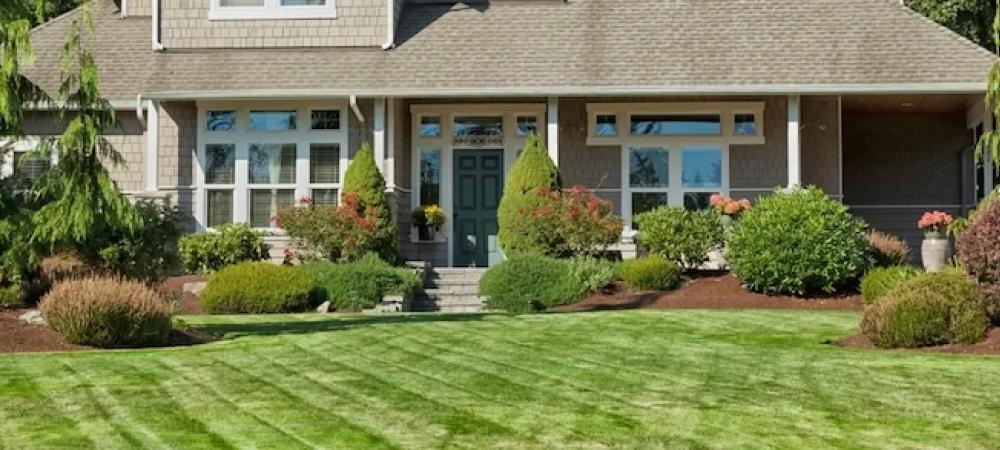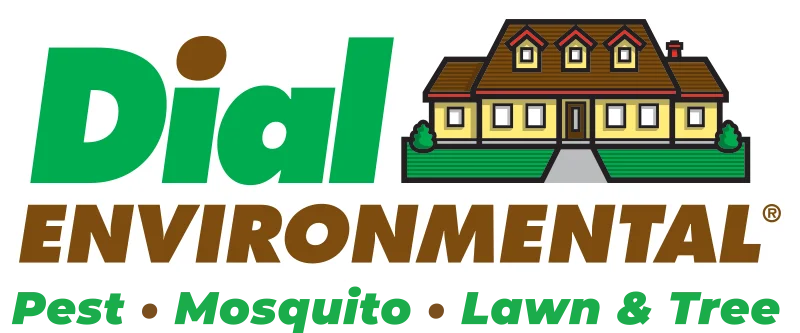Lawn & Plant Health Care Tips

Nothing rivals a beautiful, vibrant lawn and well-kept trees and plants. A healthy yard adds aesthetic appeal to your home and is the perfect place for your kids to play, but attaining the ideal landscape requires care and dedication. Here are some of our top lawn and plant health care tips to get you started.
Tips and Best Practices for Lawn Health
Caring for your lawn is simple, but there are some things you need to know. Here are some tips and best practices for homeowners to get their lawn’s health in tip-top shape.
Effective Watering
Water is critical to attaining lush grass, but did you know there’s a correct way to water your lawn? Follow these general watering guidelines for well-hydrated grass.
- Instead of turning on the sprinklers a little bit every day, deep soak your lawn two or three times per summer.
- Water between 3 am and 6 am to avoid evaporation and increase the effectiveness of your sprinklers
- Ensure even flow from all sprinklers
- Do not water if there is adequate soil moisture – using a soil meter helps to determine the amount of moisture in soil.
Aeration
The importance of aeration, which is the process of removing small soil plugs, can’t be understated. By removing these plugs, your lawn can “breathe,” and nutrients are better able to reach the roots, leading to fuller, thicker lawn. Fall is the best time to have your lawn treated to have it fully prepared for summer.
Fertilization
Speaking of nutrients, grass needs more than just water to survive. Fertilize throughout the growing season to give your lawn a boost.
Weed Control
Apart from being unsightly, weeds are an indication of infertile soil. Hand-pull any you see and reseed the area to prevent their return. The best time to seed lawn in the fall.
Prudent Mowing
Removing the top leafy layer of grass stimulates growth. It may be tempting to wait as long as possible to mow, but if you cut off too much of this top layer, you may damage the root and leave your lawn susceptible to weeds.
We recommend mowing often and leaving at least two inches when you cut the grass, though the ideal length is between 2½ to three inches.
Tips and Best Practices for Plant Health
When it comes to maintaining the health of everything else in your yard, trees and shrubs have their own set of considerations.
Water
Established trees, or trees older than two years, require little watering other than natural rainfall (unless in times of drought). New trees, on the other hand, need water to help them reach maturity. An inch or so of water a week, making sure the ground is moist but not soaked, should be sufficient.
Mulch
Mulch is critical for newly planted trees. It keeps weeds out, avoids soil compaction, and insulates the soil, and it allows the tree to retain water so the roots can stay moist.
To mulch your trees, remove the grass within a 3-foot circle around it (or more if your tree is larger). Place the wood chips or bark pieces within the circle, two to three inches deep (no more than 3 inches), making sure that the mulch doesn’t touch the tree trunk.
Prune
When branches start to look unruly, dead, or diseased, it’s time to prune. Call our arborist to find the optimal moment for pruning because species vary, and some require pruning in different seasons.
Regardless of the species, winter pruning—done after the coldest part of winter has passed—is an excellent moment to stimulate spring growth. Once the tree or plants seasonal growth has finished, summer is an optimal time to correct tree growth or eliminate flawed branches.
And it’s best not to prune at all in fall when decaying fungi proliferate and may damage your tree.
Dial Environmental: Organic-Based Lawn Care in New Jersey
As you can see, caring for your lawn and plants is a yearlong endeavor, even in the colder months when you should winterize your landscape. Sometimes, you may not have the time or expertise to keep up with your lawn, and DIY methods fail to yield the results you’re looking for.
If your yard could use a little extra help, Dial Environmental’s team are licensed arborists for lawn care and tree and shrub care. We’ll help make the yard you’ve always dreamed of reality, so contact us today to set up an appointment.
